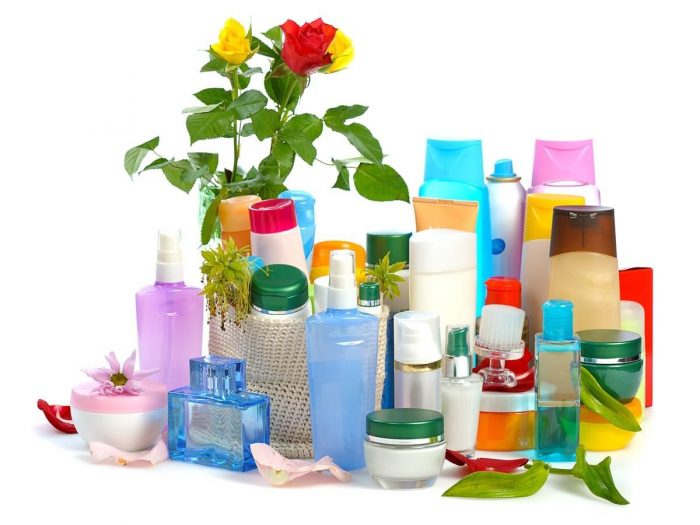Today is not the first you might be hearing about the presence of carcinogens, or cancer-causing agents, in your beauty products. But a team of researchers has shed fresh light on how strong and direct this connection is. The new research identifies that benzophenone-3 and propylparaben, even in very low concentrations, can damage DNA in breast cells, and add to breast cancer risk.
Benzophenone-3, also known as oxybenzone, is a naturally occurring aromatic ketone. Apart from being a significant ingredient in sunscreens, it also finds use in conditioners and several other cosmetics. It is effective in protecting against UV rays. Propylparaben, on the other hand, is a preservative used in various cosmetics and skin-care products, especially water-based formulas. [1]
The new study tested the two compounds on lab-grown cells as well as mammary glands in mice. It found that estrogens and xenoestrogens, chemicals like the compounds in question that can mimic estrogen behavior, affect cells with estrogen-receptors even in low doses. Contrarily, they did not cause the same sort of damage to cells without estrogen receptors.

Commonly found chemicals in beauty and skincare essentials could harm your health Photo Credit: Shutterstock
“The new research offers more sensitive tools to screen for the potentially deleterious effects of environmental chemicals, which would be overlooked by methods currently used,” said breast cancer researcher D. Joseph Jerry, professor of [2]veterinary and animal sciences at the University of Massachusetts Amherst. “Benzophenone-3 is a sunscreen that works. If you use it, you can prevent skin cancer. Am I arguing you shouldn’t use sunscreen? I am not. But there may be a subset of people for whom it may present a significant hazard,” he says, referring to individuals at high risk for breast cancer or those with a history of estrogen receptor-positive breast cancer.
The research paper was recently published in the Environmental Health Perspectives journal. [3]
